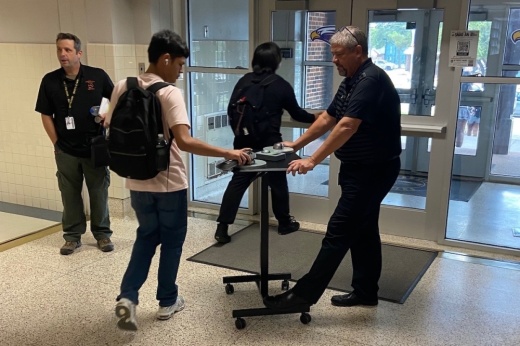The district’s three other high schools, Berkner, J.J. Pearce and Richardson, joined Lake Highlands High School as campuses requiring students to check in cellphones at the start of the school day. In total, four other junior high schools, Forest Meadow, Lake Highlands, Apollo and Liberty, also participate in the program.
The big picture
Campuses, such as Richardson High School, have observed the successes from past years and how it helps support improved learning environments for students, Superintendent Tabitha Branum said. She added that the program has support at all levels of the district, from trustees to teachers.
“We are committed to this as long as the principals feel like they need it to do the right thing for their campus,” Branum said.
Branum added that the district has reclaimed around 40 minutes in a day in instructional time, or about 10 minutes per class period.
“We're just trying to remove those distractions and those things that keep us away from the work of why we're all here, which is to help grow our learning environment,” Branum said.
The approach
The district allows campuses interested in implementing the cellphone pouch program to opt in prior to the start of each school year, Branum said.
Richardson High School Principal Chris Choat said that teachers on campus handed out Yondr pouches on the third day of school and provided instructional material on how to enter the building, stow phones and unlock the pouches at the end of the day. At Richardson High, staff man all four entrances and oversee the daily check-in and unlocking process.
With students comfortable with the procedures, Choat said students are able to complete the process of powering down phones and lock them inside the cellphone pouch or unlock their Yondr pouches and leave in around five minutes at the beginning or end of each day.
The takeaway
Choat said he has heard positive feedback from teachers, including that students are more engaged and that there is more time for instruction. District officials said they also spend less time having to resolve potential disciplinary issues that result from cellphone use, including violations of privacy or unauthorized use of devices in the classroom.
“When we didn't have the Yondr pouches, you may have a student on their cellphone, and that could turn into a couple of minutes situation, or it could be a quick situation,” Choat said. “Those instances where they are spending that time dealing with one student who is resistant to giving [up] their cellphones no longer exist.”





